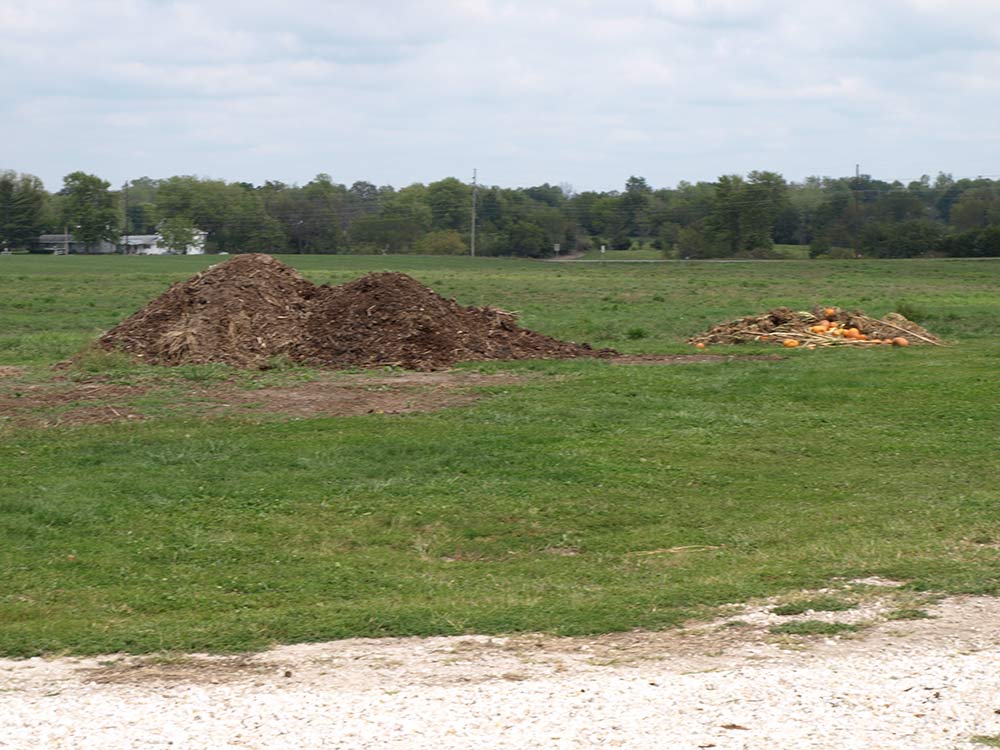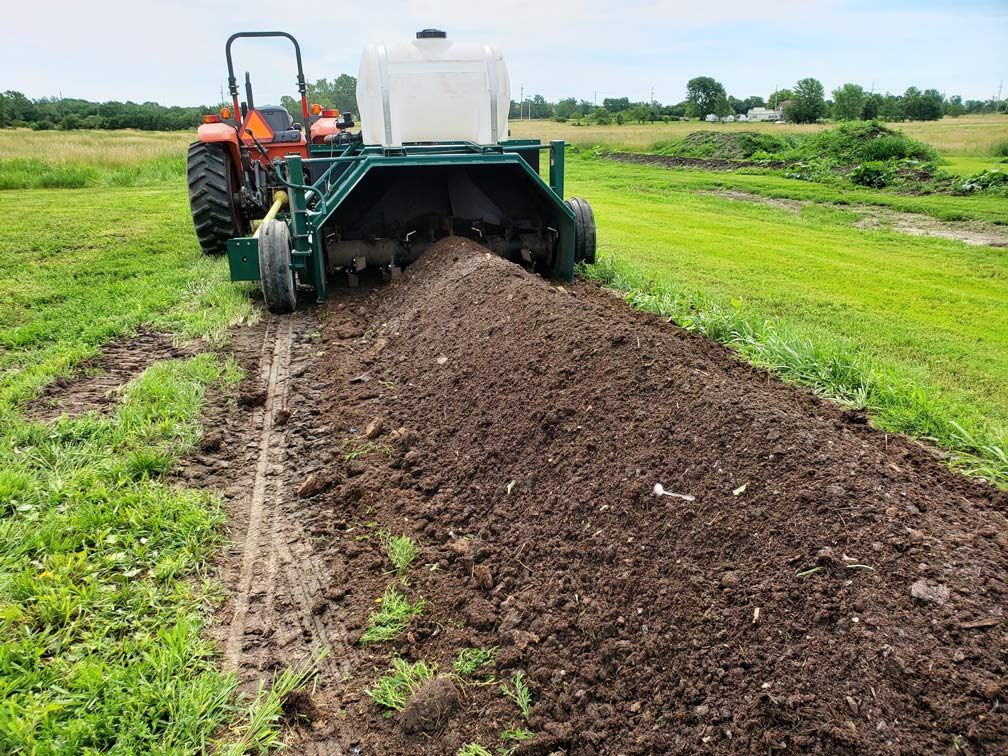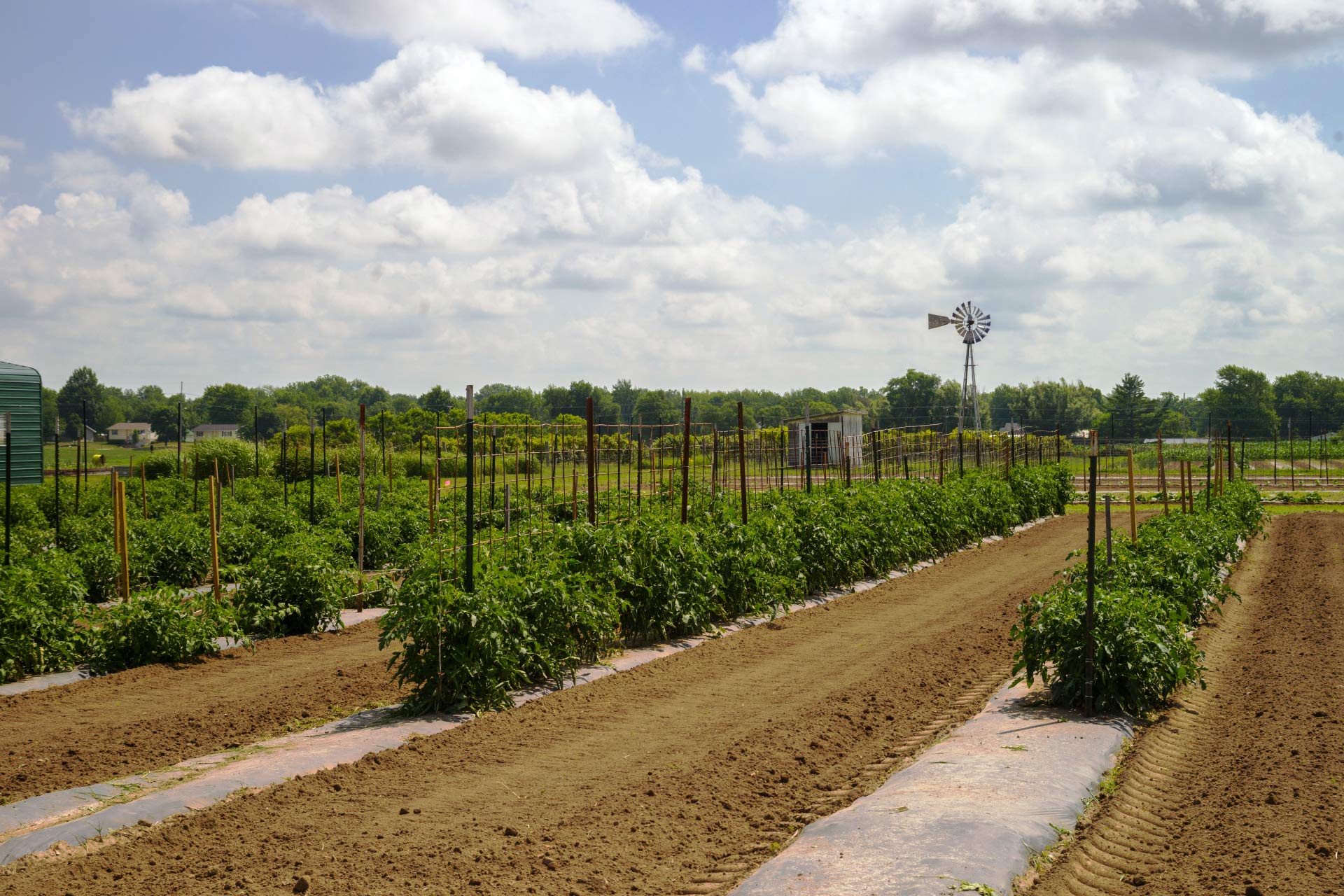The Compost Project
About the Compost Project
The Compost Project is a grassroots-level environmental organization built upon a unique relationship between students of Truman State University and Sodexo, the University’s food services.
The project was started at Truman by Dr. Michael Kelrick in 2004 with financial assistance obtained through a grant from the Northeast Missouri Solid Waste Management District, Region C.
The Compost Project, which now operates in every food service venue on campus, fosters a sense of environmentalism and provides students with the opportunity to make a difference at their university. Student members of the Compost Crew work with Sodexo employees to harvest the University’s food waste. The waste, which would have otherwise made their way to the local landfill, will eventually become a nutrient-rich soil additive free for the community.
The project diverts more than 100,000 pounds of food waste from landfills each year, converting it into a rich soil amendment that is applied to fields at the University Farm and is also made available to the public.



What is compost?
Compost is one of the niftiest forms of waste management available to us. In dictionary terms, it is decomposed organic material that can be used as fertilizer and soil amendment. Compost is the culmination of organic materials, such as food scraps, leaves and manure, that are wetted and left alone to decompose.
Once the materials reach a certain point of decomposition, when the worms are rampant and the soil rich, it can be used for farming, gardening and the like.
Where does the compost go?
The collected compost is transported to the University Farm where it is placed on a concrete slab to start the decomposition process. It is mixed with established compost, including soil and manure. After the compost has decomposed some, it is moved to a separate pile where the process continues.
The compost collected and decomposed by the Truman Compost Project is often used to replenish soil and act as a fertilizer. It is distributed to Kirksville and Truman community members as they need it for projects such as The Green Thumb Garden and the Dancing Rabbit eco-village/intentional community.
Benefits of Composting
Composting is beneficial for the environment because it turns waste, like coffee grounds, eggshells and food scraps, into something useful. Instead of sending waste to a landfill, composting allows us to give back to the soil and earth.
• Improves the soil structure, porosity, and density creating a better plant root environment.
• Reducing erosion and run-off.
• Reduces water loss and leaching in sandy soils by improving water-holding capacity,
• Supplies significant quantities of organic matter.
• Improves and stabilizes soil pH.